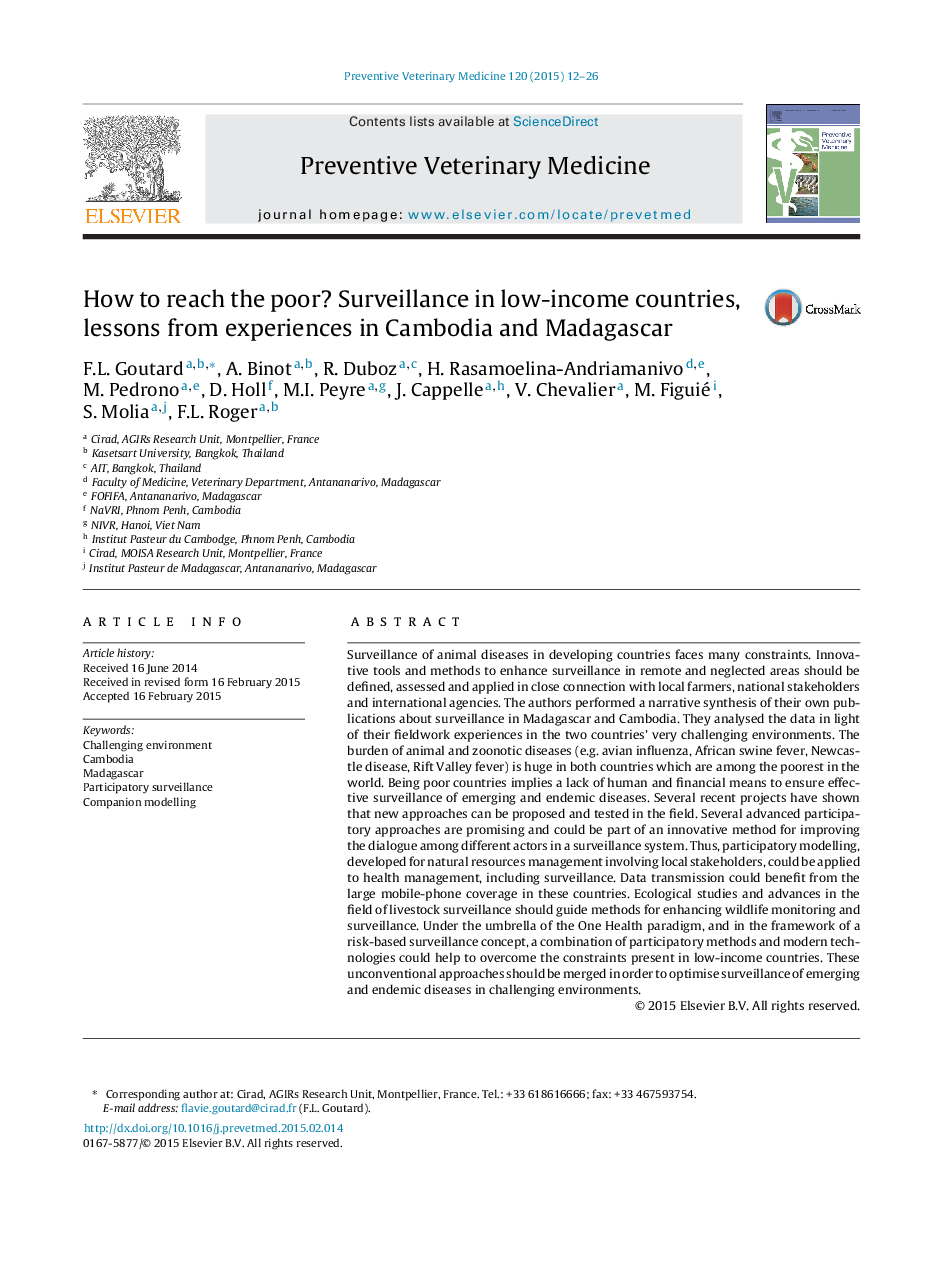| کد مقاله | کد نشریه | سال انتشار | مقاله انگلیسی | نسخه تمام متن |
|---|---|---|---|---|
| 2452424 | 1110004 | 2015 | 15 صفحه PDF | دانلود رایگان |
Surveillance of animal diseases in developing countries faces many constraints. Innovative tools and methods to enhance surveillance in remote and neglected areas should be defined, assessed and applied in close connection with local farmers, national stakeholders and international agencies. The authors performed a narrative synthesis of their own publications about surveillance in Madagascar and Cambodia. They analysed the data in light of their fieldwork experiences in the two countries’ very challenging environments. The burden of animal and zoonotic diseases (e.g. avian influenza, African swine fever, Newcastle disease, Rift Valley fever) is huge in both countries which are among the poorest in the world. Being poor countries implies a lack of human and financial means to ensure effective surveillance of emerging and endemic diseases. Several recent projects have shown that new approaches can be proposed and tested in the field. Several advanced participatory approaches are promising and could be part of an innovative method for improving the dialogue among different actors in a surveillance system. Thus, participatory modelling, developed for natural resources management involving local stakeholders, could be applied to health management, including surveillance. Data transmission could benefit from the large mobile-phone coverage in these countries. Ecological studies and advances in the field of livestock surveillance should guide methods for enhancing wildlife monitoring and surveillance. Under the umbrella of the One Health paradigm, and in the framework of a risk-based surveillance concept, a combination of participatory methods and modern technologies could help to overcome the constraints present in low-income countries. These unconventional approaches should be merged in order to optimise surveillance of emerging and endemic diseases in challenging environments.
Journal: Preventive Veterinary Medicine - Volume 120, Issue 1, 1 June 2015, Pages 12–26
